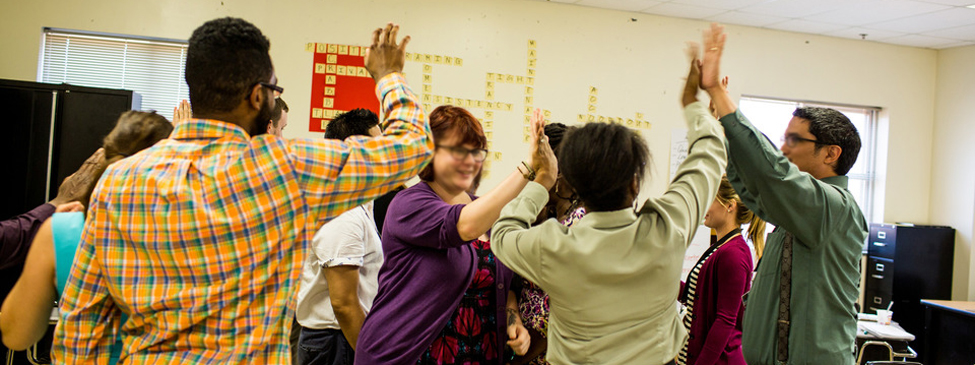It’s been a year since we released The Mirage, our study of teacher development in three large public school districts and one charter network. Our finding that most efforts to help teachers improve—well-funded and well-intentioned as they may be—are not all that helpful struck many in the field as disheartening. But we saw it more as a challenge, one that we tried to crystallize in the report’s recommendations: school systems need to set some clear goals for how professional development will help teachers improve in ways that benefit students, measure the success of PD against those goals much more systematically, and reallocate resources away from unsuccessful initiatives toward pilots of creative new ideas.
One district that’s taking up that challenge is D.C. Public Schools. DCPS is reimagining its approach to teacher development through its new LEAP program. LEAP is based on clear hypothesis: if teachers spend time every week delving deeply into the academic content behind upcoming lessons and practicing the delivery of the trickiest concepts, they’ll be more successful helping students meet the higher bar set by the Common Core standards.
Critically, DCPS is backing up this idea with a substantial investment of resources in the form of time, people, and money. Starting this fall, all DCPS schools will be setting aside 90 minutes every week dedicated to LEAP training time—no small feat in a large and complex system. Assistant principals, teacher leaders, and instructional coaches will lead LEAP in weekly content teams. Central teams have been reorganized to generate content for teachers. And DCPS has retained the respected non-profit Leading Educators to support the effort.
But it isn’t just the magnitude of the investment that separates LEAP from typical teacher PD. Those 90-minute sessions won’t be the typical large-group, one-size-fits-all PD you’re probably picturing. Teachers will meet in small groups focused on the subjects they actually teach, led by a coach with a track record of success in that subject.
Rather than focusing on general skills like classroom management, these sessions will center on the concepts teachers are helping their students grapple with at that very moment. For example, math teachers might discuss the best way to give students a deeper understanding of two-digit multiplication. English teachers might brainstorm specific techniques to help students interpret poetry. And LEAP sessions will be more than just talk: two-thirds of the time will be dedicated to giving teachers a chance to practice upcoming lessons and receive real-time feedback from the group, followed by real-classroom observations.
Crucially, DCPS has a plan to closely monitor the success of LEAP by looking for evidence in classroom observations that the new training is helping teachers become more effective in ways that lead to greater student learning. They’ll also have academic researchers study LEAP’s longer-term impact on teachers and students, and will publish the results. This cycle of monitoring teacher development efforts and adjusting them based on the results might sound like common sense, but it’s a step school systems rarely take—and a big reason why billions of taxpayer dollars a year go toward PD that doesn’t work.
When we write reports like The Mirage, our goal is to provoke discussion and provide practical guidance that helps school system leaders and educators solve an important problem. I’m excited that it helped spark such an innovative approach to teacher development in DCPS—one that has real potential to improve instruction for DCPS students and to influence efforts in other school systems.
But I’m especially curious to hear what DCPS teachers think of it—how it compares to their past PD experiences, and whether they think LEAP is helping them improve. I was fortunate to observe a day of LEAP training for teacher leaders this summer and there was tremendous energy from educators digging deeply into content with their peers. Over the course of the coming school year, we’ll be bringing you dispatches from the classrooms of several teachers participating in LEAP right here on the TNTP Blog to see if that energy extends into the school year. We’ll also spotlight the efforts of other school systems who are recommitting themselves to giving teachers the support they need to reach their full potential in the classroom.



